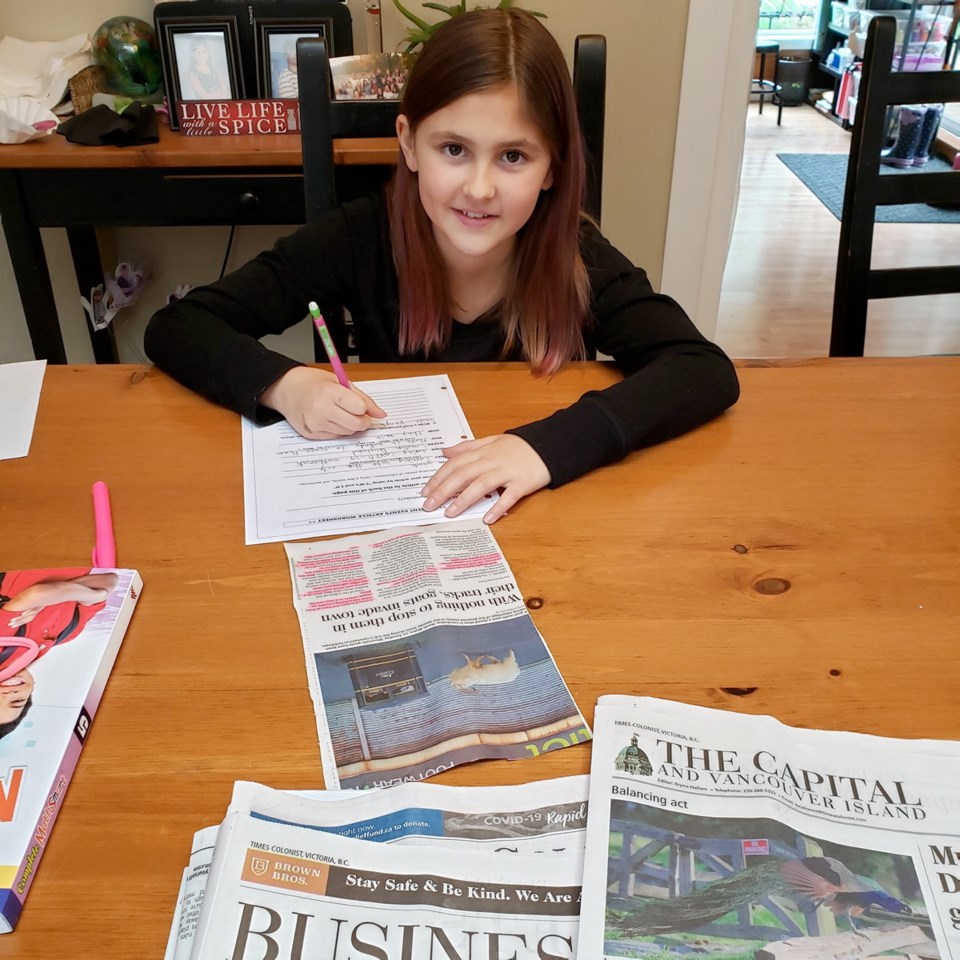Now that spring break is over, the Nixon kids have headed back to class.
But like many other students across the province, their learning for the moment is being done at home. Education Minister Rob Fleming announced March 17 that face-to-face instruction at saąúĽĘ´«Ă˝ schools was on hold in an effort to help contain the COVID-19 pandemic.
The ministry is aiming to have alternate learning methods in place for saąúĽĘ´«Ă˝ schools by the middle of the month.
The Nixons have a bit of a head start. Lorenzo, 12, and Veronica, 10, would normally be attending Seaview Elementary School in Lantzville.
Parents Kelly and Cheryl, who run a catering business, are also biding their time at home these days. Kelly said their company tends to deal with groups of 30 or more, so work has dried up.
He said he has done a lot of research of late on schooling from home, which has been underway at the Nixon household for just a few days.
“We didn’t want to torture them and do schooling during spring break,” Kelly said with a laugh.
A family discussion on Monday led to a plan for classes. The idea was to get the children involved from the start and build a routine.
“We figured if we gave them some input it then might be a little easier for them to digest,” he said.
Even though their plan might not completely follow the actual school curriculum, “I think any learning is good learning,” he said.
Math is first on the daily agenda, followed by a 15-minute break and then a reading exercise using the day’s edition of the saąúĽĘ´«Ă˝. Each child chooses an article and completes a standardized current-events worksheet, which Cheryl found online.
They determine the 5Ws of the article — who, what, where, when and why — along with the “how,” and then combine those answers in a paragraph.
“That way it covers reading and writing,” Kelly said. “I get the paper every day so it worked out perfectly.”
He said it is good to keep on top of current events, especially now with concerns about COVID-19.
One of Veronica’s article choices has been about goats descending on a Welsh town, while Lorenzo picked a story about musicians performing from their residences due to the pandemic.
“It doesn’t have to be something serious, just something that they’re interested in reading,” Kelly said.
After lunch, Lorenzo practises his guitar and Veronica works on piano, and then it’s some form of exercise, like a bike ride.
A science session follows, then perhaps a trivia game.
And since the children are physically isolated, the usual family rules about no electronics during the week have been relaxed so they can communicate with their friends and be social.
“We do all this schooling at home and they’re learning, but school is so much more than that,” Kelly said.



